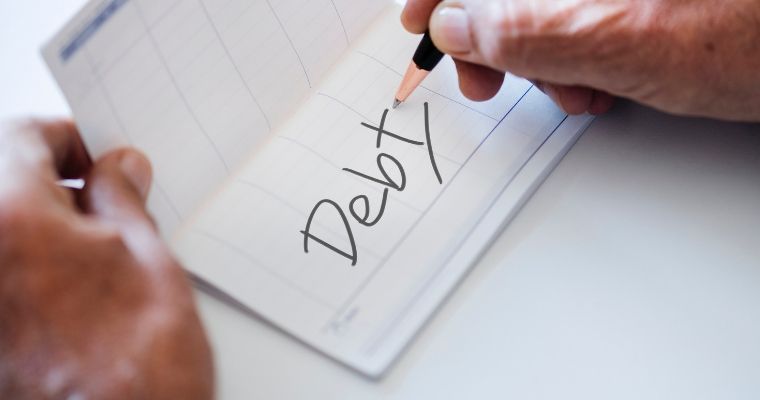It’s very easy to spend money than it is to save it and it will come as no surprise that many of us are likely or have already been in debt at least once in our lifetime. That could be anything from a few hundred pounds to thousands. Here are some important tips on avoiding debt and living frugally.

Don’t Spend Beyond Your Means
It’s a simple thing, but a lot of us tend to break this rule. Spending beyond your means is defined as spending more money than you actually have. This is how and why you end up getting into debt, and it’s not a good lifestyle to live, especially if you’re responsible or supporting other members of your household. Try to focus on what you do have available and give yourself the challenge of saying no to things that will leave you in the negative. It’s all about being careful with your money and that when you’re in debt, it’s not money that’s yours to spend.
Budget Like a Pro
Budgeting helps with saving money because it makes you aware of how much you have to spend and what’s remaining from the amount you have to pay regardless of each month. Without a budget, it’s easier to spend haphazardly. Set out your budget on an Excel spreadsheet and note down everything you pay for currently per month. Estimate from previous months how much you usually spend outside of your regular payments and look at where you can cut down. The longer this budget is in place, the easier it will become to make it a habit and then you can push yourself to save more and spend less as the months go by and you get used to living with a certain amount.
Plan for Retirement
The earlier you start saving for retirement, the less likely you are to face debt problems in the future. Even a small amount put away regularly can add up over time due to the power of compound interest.
Curb Credit Card Spending
Spending beyond your means will often include going into a bank overdraft and using your credit card to make payments. Your credit card acts just like another form of overdraft, so never set your credit card limit to more than what you need.
It should never really be more than your wages per month and if it is currently it’s best to reduce it. Try to avoid using your credit card at all unless it’s for a big expenditure or something you can’t afford to pay off in one go.
Credit cards are for emergencies only, so remind yourself of this every time you try and spend something on your credit card.
Avoid Impulse Purchases
Impulse buying can lead to unnecessary debt. Before making a purchase, take a moment to consider whether you really need it and if it fits within your budget.
Avoid Expensive Habits
Habits like smoking, drinking, or buying expensive coffee every day can add up. Cutting these out or reducing them can help you save money.
Cook at Home
Eating out frequently can quickly add up. By cooking at home more often, you can save a significant amount of money.
Have an Emergency Fund
You should always be saving some money from your wages every month. This is because an emergency fund will always come in handy for when you need it the most. You should set up an emergency fund when you start working, and you put so much in each month directly. See it as a regular payment just like a mortgage payment or utility bill.
Try to Increase Your Income
If you’ve cut back as much as you can and still find yourself living beyond your means, it might be time to consider increasing your income. This could mean asking for a raise at work, seeking a higher-paying job, taking on a part-time job or freelance work, or exploring ways to earn passive income.
Consolidate Your Debt
If you have multiple debts with high-interest rates, you may want to consider debt consolidation. This involves taking out a new loan to pay off your existing debts, ideally at a lower interest rate. This can reduce your monthly payments and make your debt more manageable.
Negotiate Bills
It’s possible to negotiate lower rates on bills like cable, internet, and insurance. It doesn’t hurt to call and ask if there’s any way to reduce your monthly payments.
Consider Downsizing
If a significant portion of your income is going towards housing, consider moving to a smaller home or apartment. This can significantly reduce your monthly expenses.
Use Public Transport
If possible, consider using public transportation instead of owning a car. This can save you money on car payments, insurance, gas, and maintenance.
Remember, the key to living within your means and avoiding getting into debt is understanding your income and expenses, and making adjustments as necessary. It might take time and require some difficult choices, but it’s essential for your financial well-being.


